I am using C++ Builder to create a VCL form application. Right now I have a TFrame containing a bunch of components and it looks like this...

I also have a button call "Add". Basically every time I press that Add button on the form, a new TFrame is added to it and below the previous one making something that looks like a table. And in order to add duplicates I have to rename the TFrame each time before it is created.
int __fastcall TForm1::AddMapCells(void)
{
Num++;
TFrame1 * MyFrame = new TFrame1(Form1);
MyFrame->Parent=Form1;
MyFrame->Name = "TFrame" + IntToStr(Num);
MyFrame->Top = 23*Num;
return Num;
}
So then the naming of TFrame would be TFrame1, TFrame2, TFrame3, etc.
The problem now is I want to make it so then each time I press the 'X' button of a TFrame, it deletes that TFrame and I'm not quite sure how to do it. I was thinking maybe each time I create a TFrame I can also rename the 'X' button so then it's like Button1, Button2, Button3, etc. And then to delete the program would just match ButtonX with TFrameX to identify which TFrame to delete. For example, if I press Button 4, it should match up with TFrame4 and delete TFrame4.
I don't know how to implement this idea. Or would there be an easier way of doing this?